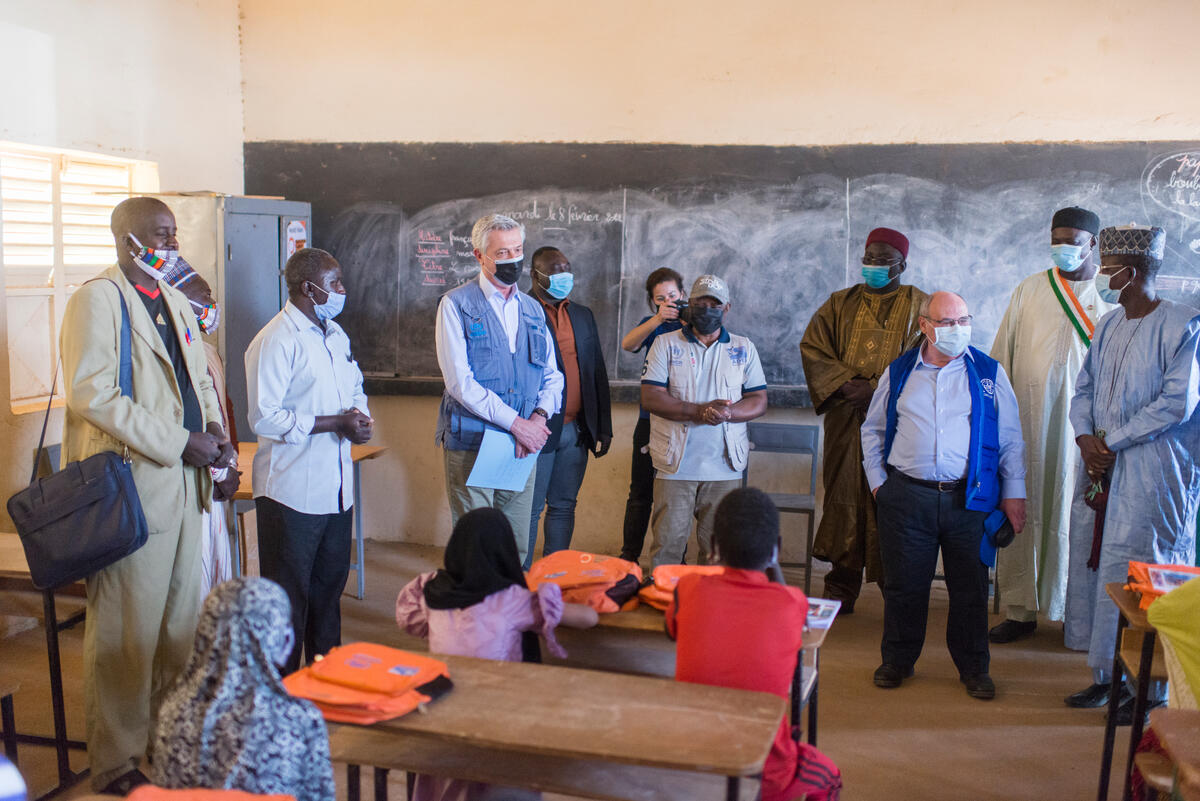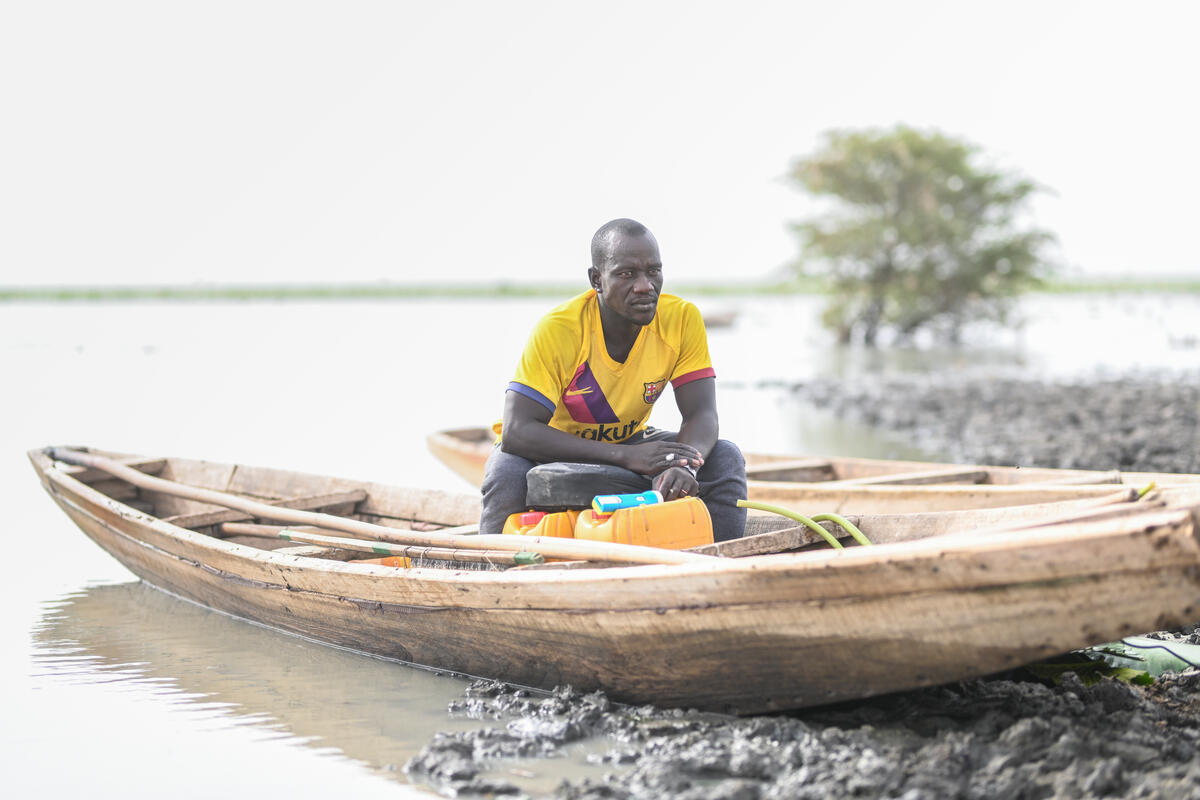UNHCR roots for World Environment Day
UNHCR roots for World Environment Day

DAR ES SALAAM, Tanzania, June 5 (UNHCR) - Tender new seedlings are taking root today in and around all 14 refugee camps in Tanzania, as the UN refugee agency once again joins the UN Environment Programme and the international community in celebrating World Environment Day on June 5.
Throughout Tanzania's refugee-hosting areas of Kasulu, Kibondo and Ngara, refugees are planting trees and putting on dances, concerts by Burundi drummers and sports activities in honour of the day. Posters produced by refugees are on display, with messages encouraging refugees not to encroach on environmentally protected areas near the camps, and to cut down only those trees that are specially marked for logging purposes. Refugees are also advised to use environmentally friendly stoves, which are on display in the camps.
To further raise awareness, roundtable discussions are being held on environmental issues with non-governmental organisations, UNHCR and refugees.
In Zambia, school competitions are being held to encourage refugee youth to reflect on their own actions, how these might impact the environment and what steps they can take to change their behaviour. Refugee camps are holding demonstrations of tree planting, the use of energy-saving stoves, good cooking/fire management practices and soil conservation techniques.
These are among the many special events for World Environment Day planned by UNHCR field operations, including demonstrations of sound environmental practices, awareness-raising campaigns, camp clean-ups and sporting events. As in past years, many of these activities are undertaken at the wish of the refugees, who want to help make a difference by improving their living conditions and contributing in some small way to better environmental management in and around the many camps and settlements worldwide.
The UN refugee agency strives to address environmental issues at an early stage in refugee operations, and seeks the collaboration and support of refugee-hosting countries, the donor community and other international organisations to help prevent degradation and redress environmental damage.
This year's World Environment Day is particularly relevant to refugee-related programmes, as 2003 has been declared the International Year of Freshwater. The theme for World Environment Day is "Water - 2 billion people are dying for it". Access to safe water is a basic human right, and is often, for many refugees, the key to life or death. Refugees, when they arrive suddenly and in large numbers, invariably need water for drinking, washing and cooking. These large influxes have major environmental impact, including degradation of natural resources, with disruption of the natural water cycle affecting water quality and quantity.
Water serves many different functions in the lives of refugees. Worldwide, UNHCR, through its many partners, carries out 285 activities in 46 countries to provide safe water for refugees. These range from trucking water to refugee sites and drilling wells, to running and maintaining generators and water pumps to keep water systems functioning. But whereas provision of enough safe drinking water is the priority during emergency operations, as soon as the situation stabilises, UNHCR assistance programmes address other water-related issues.
Flowing water can erode soil and destroy infrastructure, and the timely development of drainage network and adequate soil protection measures are implemented through environmental programmes, such as in Tanzania where a number of small dams were built to control soil erosion. These are complemented by activities like planting trees and restoring vegetal cover.
Ponds, lakes and rivers are the habitat of numerous plants and animal species, and environmental rehabilitation programmes seek to protect the high biodiversity of these ecosystems, and to generate income through the exploitation of natural resources. One example is the fish programme implemented for returnees in Laos, which gave them a sustainable source of food.
But water is also an essential production factor, and many programmes include the provision of water for non-drinking purposes. A typical example is the gardening programme, where the sufficient provision of water allows a great variety of vegetables to be produced, as in Zimbabwe. Water must also be made available for shelter programmes, and for income generation programmes such as carpet weaving in Pakistan as the transformation of raw sheep fleeces in carpet making requires a lot of water.
To mark the International Year of Freshwater, UNHCR has launched a global survey on water supply for refugees to identify the major gaps in providing safe water to the 20 million refugees and others of concern to the agency worldwide. The survey, which should be completed later this year, will help UNHCR better direct and shape its water projects.









